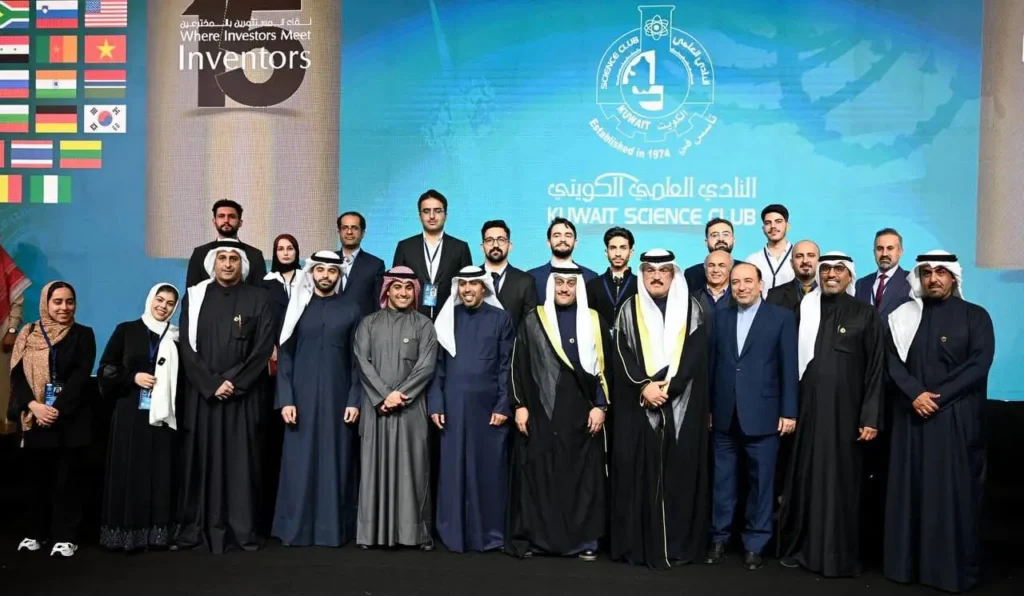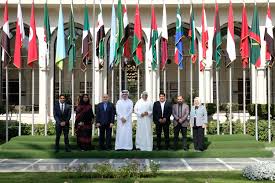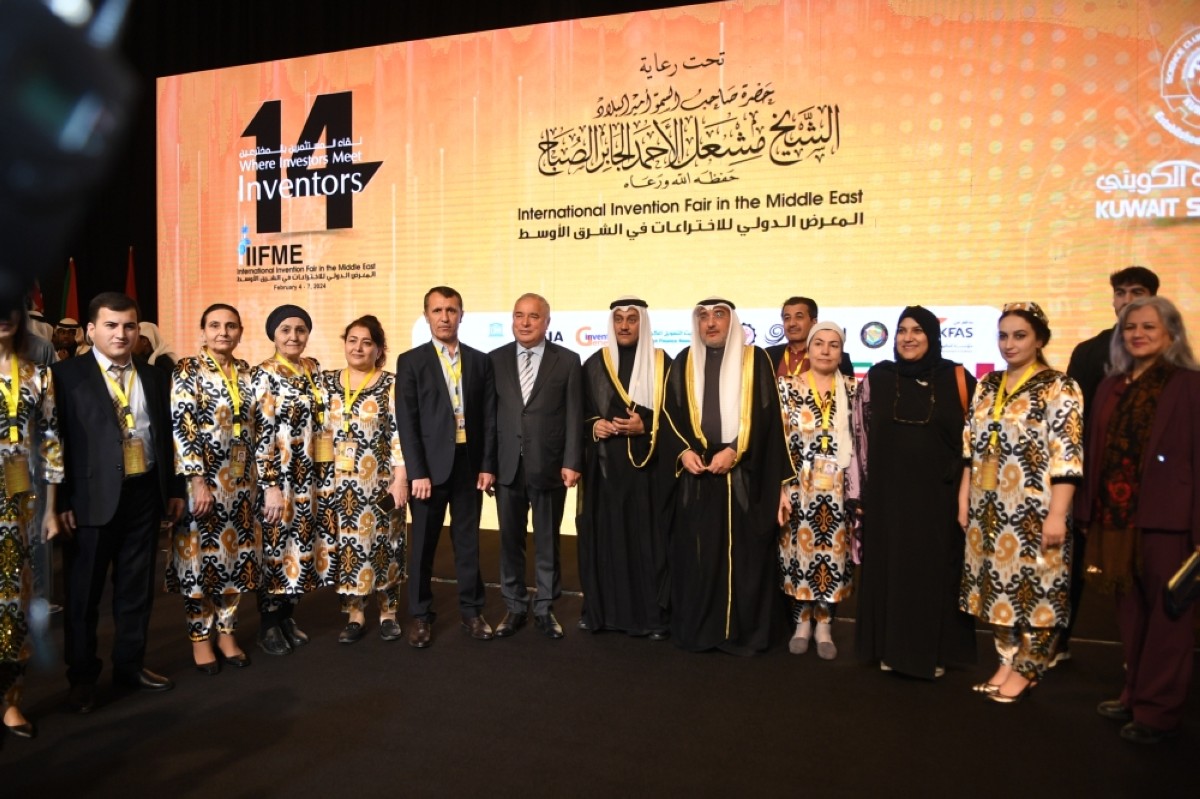A New Chapter in Arab Scientific Collaboration
In a promising step toward advancing scientific knowledge and innovation across the Arab world, the Kuwait Science Club and the Arab League have embarked on discussions aimed at strengthening cooperation in scientific research and technological development. The meeting, held recently in Kuwait City, reflected a shared vision to transform the region’s scientific potential into tangible progress that benefits society, youth, and future generations.
The Kuwait Science Club, a prominent institution known for its contributions to science education and innovation, has long been a hub for aspiring researchers, inventors, and young minds passionate about discovery. With the Arab League’s involvement, the initiative is set to elevate regional scientific cooperation to an unprecedented level. Both institutions are aligning their goals to create a dynamic ecosystem that fosters research excellence, promotes youth engagement in science, and encourages cross-border collaboration among Arab nations.
This dialogue marks not only a bilateral exchange but also a symbolic commitment to a collective Arab renaissance in science and technology.
Shared Vision for a Knowledge-Based Future
At the heart of the discussion lies a mutual understanding: the Arab world possesses immense untapped scientific talent that requires coordination, investment, and shared platforms. The Kuwait Science Club has proposed developing a framework that connects Arab research institutions, universities, and innovation centers under one cooperative umbrella supported by the Arab League.
The emphasis is on establishing mechanisms that enhance communication between scientists, facilitate joint research projects, and provide opportunities for young Arab researchers to collaborate across borders. This initiative aligns with the broader goals of the Arab League to create a sustainable knowledge-based economy and promote scientific advancement as a cornerstone of development.
The two parties discussed key focus areas such as renewable energy, environmental conservation, artificial intelligence, health sciences, and space technology all sectors that hold promise for transforming the region’s socio-economic landscape.
Empowering Youth Through Science and Innovation
One of the most inspiring aspects of this collaboration is its strong focus on youth. The Kuwait Science Club, which has nurtured thousands of young innovators through workshops, science fairs, and competitions, envisions expanding its programs to reach young people across the Arab region.
By partnering with the Arab League, the Club hopes to establish a network of youth science ambassadors who can lead projects, share ideas, and represent their countries in joint Arab research initiatives. The goal is to create an environment where curiosity, creativity, and critical thinking are celebrated and supported.
Through training programs, mentorship, and funding for student-led research, this initiative could help shape a generation that is scientifically literate, technologically skilled, and motivated to solve real-world challenges.

Building Research Capacity Across Arab Nations
Another major outcome of the discussions was the shared commitment to strengthen the research infrastructure within Arab countries. Many nations in the region are investing heavily in research and development, yet disparities remain in access to technology, funding, and expertise.
The Kuwait Science Club proposed the establishment of a regional research exchange program under the Arab League’s umbrella. This would allow scientists and students to spend time at partner institutions across member states, gaining exposure to new methodologies and fostering collaboration on cutting-edge projects.
Furthermore, the discussions explored the idea of creating a centralized digital platform for research sharing a virtual “Arab Science Network” where researchers can publish findings, share data, and connect with potential collaborators. Such a move could accelerate knowledge transfer and bridge gaps between universities, government agencies, and private sector innovators.
Science as a Tool for Unity and Development
In a region often characterized by diversity and complexity, science has the power to unite. Both the Kuwait Science Club and the Arab League acknowledged that scientific collaboration can serve as a bridge for cooperation among Arab countries, fostering a shared sense of purpose that transcends borders.
By prioritizing joint research in areas like water security, food sustainability, and renewable energy, the initiative aims to address challenges that affect the entire region. Science, in this context, becomes a means of solidarity a unifying language that connects nations through shared problems and collective solutions.
The Arab League representatives emphasized that supporting science and innovation is not merely about technological progress; it is about empowering communities, reducing unemployment through new industries, and equipping future generations with the skills needed to thrive in a globalized world.
Women in Science: A Central Focus
Recognizing the importance of inclusivity in research and innovation, both institutions discussed strategies to empower women in science. The Kuwait Science Club, known for its efforts in supporting female participation in STEM fields, shared plans to organize specialized programs and scholarships targeting young women scientists across the Arab region.
The Arab League expressed strong support for this initiative, underscoring that the advancement of women in science is integral to achieving national development goals. By providing opportunities for women to lead research projects and participate in international conferences, the collaboration seeks to ensure that women’s voices are equally represented in shaping the future of Arab science.

Innovation Hubs and Joint Research Centers
A key highlight of the meeting was the proposal to establish Arab Innovation Hubs state-of-the-art facilities that serve as incubators for scientific ideas and technological prototypes. These hubs, to be jointly managed by the Kuwait Science Club and selected member states, would provide resources, mentorship, and technical support to innovators working on projects with regional relevance.
The focus will be on applied research that directly contributes to solving societal problems from clean energy and climate adaptation to healthcare technologies and digital transformation. The Arab League expressed interest in mobilizing financial and institutional support to make these hubs operational within the next few years.
This move is expected to significantly enhance the region’s capacity for innovation and entrepreneurship, while also attracting international partnerships and investments in research.
Integrating Science with Education
The partnership also aims to bridge the gap between scientific research and educational systems across Arab countries. The Kuwait Science Club proposed the development of a curriculum enhancement program that integrates hands-on scientific learning into schools and universities.
The Arab League welcomed this idea, emphasizing that nurturing a scientific mindset from an early age is essential for sustainable progress. Plans are underway to create a regional “Science in Schools” initiative, which will include interactive science kits, teacher training programs, and mobile laboratories that can travel to rural and underserved areas.
Such efforts not only inspire curiosity among students but also help identify and nurture future scientists who can contribute to national and regional innovation agendas.
Expanding International Partnerships
While the collaboration focuses on strengthening Arab scientific unity, both parties recognize the importance of connecting with the global scientific community. The Kuwait Science Club and the Arab League expressed their commitment to building international partnerships with global research institutions, universities, and technology organizations.
Through exchange programs, joint conferences, and shared research funding, the Arab scientific community can benefit from global best practices and emerging technologies. This global engagement also helps position Arab researchers as active contributors to the international knowledge economy.
By showcasing Arab innovation on the world stage, the partnership aims to change global perceptions from being consumers of technology to becoming active creators and pioneers of new scientific solutions.
Sustainable Development Through Science
A recurring theme throughout the discussions was sustainability. Both the Kuwait Science Club and the Arab League agreed that scientific research must align with the United Nations Sustainable Development Goals (SDGs) and address the region’s pressing environmental and economic challenges.
Projects related to renewable energy, waste management, marine conservation, and smart agriculture are expected to receive special focus under this cooperation framework. Kuwait’s experience in environmental science and the Arab League’s regional policy influence can together foster impactful projects that contribute to sustainability and resilience.
The vision is clear to build a future where science not only drives innovation but also ensures that progress remains equitable, sustainable, and inclusive.
The Spirit of Cooperation and Future Plans
The meeting concluded with both institutions reaffirming their commitment to continue working closely in shaping a unified Arab scientific agenda. Plans are in motion to establish a joint steering committee that will oversee the implementation of collaborative programs, monitor progress, and identify emerging areas of mutual interest.
Regular forums and symposiums are expected to follow, allowing scientists, policymakers, and educators from across the Arab world to exchange insights and explore partnerships. The Kuwait Science Club also announced its readiness to host the first “Arab Forum for Scientific Innovation,” which will serve as a launchpad for regional cooperation in research and development.
This forum will act as a catalyst for change where ideas meet action, and ambition meets opportunity.
Inspiring Hope for the Next Generation
At its core, the dialogue between the Kuwait Science Club and the Arab League represents more than institutional cooperation; it embodies a shared dream for the Arab world a dream where young people see science not as a distant concept but as a tool for change.
Through sustained collaboration, investment, and vision, this partnership has the potential to transform the Arab scientific landscape, creating a vibrant ecosystem where knowledge thrives, innovation flourishes, and communities prosper.
In the words of one participant, “Science knows no boundaries, and when nations come together to pursue knowledge, the future becomes limitless.”
The Kuwait Science Club and the Arab League’s united efforts mark a turning point a beacon of optimism that reminds the world that the Arab region, rich in intellect and history, is ready to shape its scientific destiny.
Do follow Gulf Magazine on Instagram.
Also Read – Tokyo Governor’s Inspiring Visit Strengthens Scientific Ties With Kuwait



